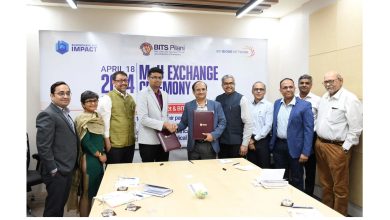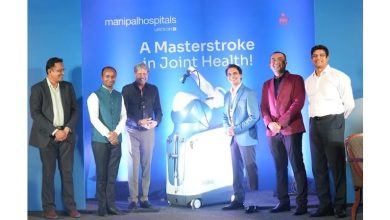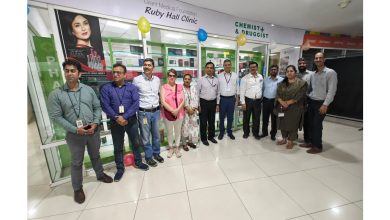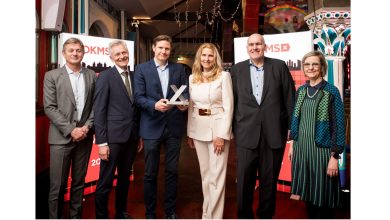Key stakeholders convene ahead of the G20 second health working group meet in Goa

Discussions were held to strengthen global collaboration in research and accelerate regional manufacturing for diagnostics
The Department of Pharmaceuticals, Government of India, FIND and Unitaidco hosted a high-level meeting to strengthen cooperation and enable sustainable development and manufacturing of effective, quality and affordable diagnostic countermeasures before the G20 second health working group meeting, which will take place till April 19, 2023 in Goa.
Stakeholders in attendance included representatives of the Government of India and G20 Member States (Australia, France, the UK, Indonesia, Russia, Brazil and observers Mauritius, Netherlands, Oman), international organisations and over 20 diagnostics manufacturers from around the world.
While inaugurating the event, S Aparna, Secretary of the Department of Pharmaceuticals, said, “The centrality of diagnostics extends far beyond testing for a pandemic. Diagnostics are key to preventing and treating diseases optimally and by extension achieving universal health coverage (UHC). The Government of India is committed to ensuring quality, affordability and access to diagnostics. We hope that the deliberations from today will be taken forward at the second Health Working Group meeting tomorrow.”
Regional development of diagnostics products through region-appropriate research and decentralized production of diagnostics can help reduce disparities, enhance health security, including pandemic prevention, preparedness and response capabilities, support UHC and contribute to regional economic growth.
Sanjay Sarin, Vice President of Access, FIND, said, “The pandemic has bolstered the role of a more decentralized model for manufacturing diagnostics, one that combines global and regional manufacturing alike, in support of equitable and sustainable access to diagnostics worldwide. In line with the priorities of the G20, we believe that decentralized manufacturing supports the broader mission of expanding access to diagnostics and achieving UHC.”
The meeting was built on a successful two-day technical workshop on April 13–14 in Goa, organised by FIND and Unitaid and attended by over 20 diagnostics manufacturers from 13 countries. The workshop focussed on the development, manufacturing, and commercialisation of tests for low-and middle-income countries (LMICs), and the need to accelerate regional production of diagnostics in LMICs. It provided an opportunity for diagnostic manufacturers to deliberate on the enabling factors required for the sustainability of decentralised diagnostic R&D and manufacturing.
As a result of the workshop, manufacturers clearly stated their interest in establishing partnerships to facilitate the transfer of technology, know-how, and capacity building. Manufacturers also highlighted the need for countries to develop national diagnostic strategies with concrete budget allocations and procurement frameworks prioritizing sourcing of regionally manufactured tests. They stressed the need for governments and development partners to continue strengthening regulatory mechanisms and to make clear commitments to facilitate harmonisation and fast-track regulatory processes for regionally manufactured products.
Finally, in line with the India G20 Presidency goals, there was agreement that funding needs to be made available to create and maintain capacity for coordinated global manufacturing, R&D and technology transfer.
Robert Matiru, Director of Programmes, Unitaid said, “The problems are clear. It is now critical that we take bold action and prioritise innovations that drive the availability and equitable access to essential health technologies, including diagnostics. At Unitaid we are committed to adopting a market-based approach to accelerate, expand and sustain regional production, and will work with our partners to explore all solutions towards building more resilient health access globally.”
The meeting today provided an opportunity for diagnostics industry partners to put forward their recommendations to the G20 Member States so that they can be taken into consideration during the G20 second health working group meeting which has outlined “Strengthening cooperation in the pharmaceutical sector with a focus on availability and access to safe, effective, quality, and affordable medical countermeasures — diagnostics, vaccines and therapeutics” as a key priority.
Summarising the discussions, Dr Rajiv Bahl, Secretary of the Department of Health Research and Director-General, Indian Council of Medical Research said “The need for diagnostics is immense. As we move forward into the second health working group meeting, it will be important for G20 countries to consider measures for greater investment in diagnostics, collaborative R&D and manufacturing networks that complement existing efforts and strengthen local capacities and address policy, infrastructure and human resource related challenges.”
PIB




